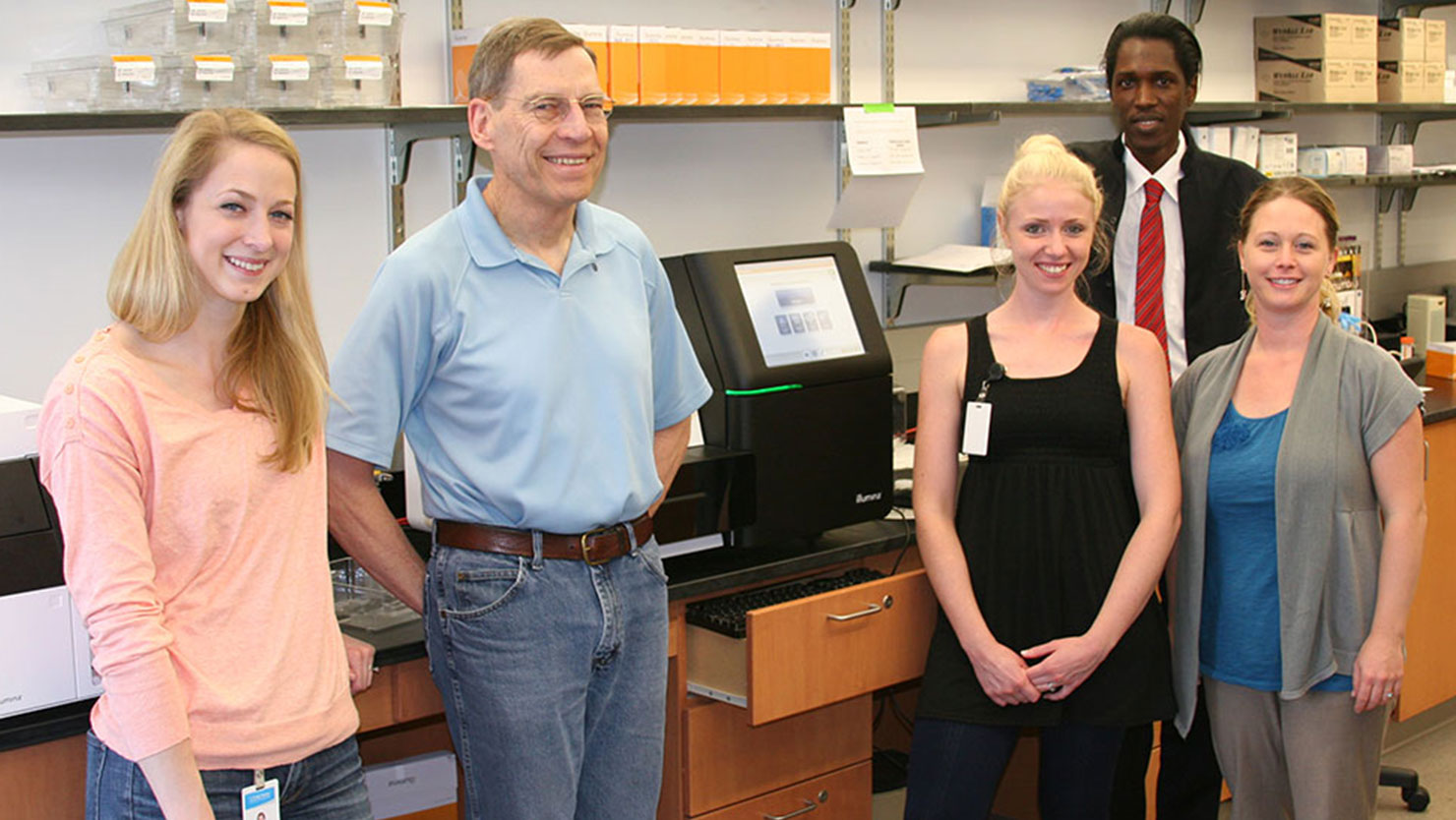JCVI Hosts South African Scientists to Share Microbiome Research Techniques

Two scientists from the University of Cape Town, South Africa have joined Dr. Bill Nierman’s lab for the next month as part of NIH’s Human Heredity and Health in Africa (H3Africa) Initiative, a training program designed to build out technical biological skills in the African research community. This training relates specifically to developing techniques around the area of microbiome analysis, a relatively new field in the biological sciences.
Microbiome analysis for the collaborative study is looking at entire community of microorganisms in the respiratory tract of South African infants to better understand how the microbiome is associated with infant pneumonia and wheezing episodes. The expectation is that the organisms that reside in the infant respiratory tract will provide protection from or a predisposition to the pneumonia or wheezing episodes.
Mamado Kaba, MD, PhD and colleague Shantelle Claassen from the University of Cape Town will be working closely under the guidance of JCVI’s Stephanie Mounaud who is functioning as the project manager and coordinating the laboratory components of a similar project at JCVI studying the microbiomes of inafnts in the Philippines and also in South Africa. These studies are sponsored by the Bill and Melinda Gates Foundation. The training will focus initially on preparing samples for DNA sequencing on a modern DNA sequencing platform, the Illumina MiSeq instrument. Once the sequence reads are off the sequencer, the instructional focus will shift to analysis of the reads by means of an informatics pipeline that develop phylogenies, or family trees, of the microbes that are obtained from the infant respiratory tract so that the abundance and relatedness of the microbes can be established. The bioinformatics training will be provided by Jyoti Shankar, the statistical analyst working on the Gates Foundation Project.
Mamadou Kaba is a Wellcome Trust Fellow working in the Division of Medical Microbiology, Faculty of Health Sciences, University of Cape Town. Mamadou’s research interests include the molecular epidemiology of infectious diseases and the study of human microbiome in healthy and disease conditions. He has contributed in establishing a new research group conducting studies on how the composition of the upper respiratory tract, gastrointestinal, and the house dust microbial communities influences the development of respiratory diseases.
Prior to joining the University of Cape Town, Mamadou worked as Research Associate at the Laboratory of Medical Microbiology, Timone University Hospital, Marseille, France, where he studied the epidemiological characteristics of infection with hepatitis E virus in South-eastern France.
Shantelle Claassen is pursuing a Masters degree in the Division of Medical Microbiology at the University of Cape Town. She has completed a BSc (Med) Honours degree in Infectious Diseases and Immunology at the University of Cape Town, during which she examined the relative efficacy of extracting bacterial genomic DNA from human faecal samples using five commercial DNA extraction kits. The DNA extraction kits were evaluated based on their ability to efficiently lyse bacterial cells, cause minimal DNA shearing, produce reproducible results and ensure broad-range representation of bacterial diversity.
Mamadou and Shantelle are currently involved in an additional prospective, longitudinal study of which the primary objective is to investigate the association between fecal bacterial communities and recurrent wheezing during the first two years of life.